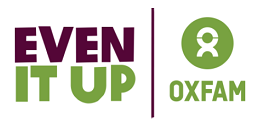« back
An Economy for the 99%
 January 2017 / Kim Andreas Kessler, Academic Trainee, Quality Assurance and Poverty Reduction Section, Swiss Agency for Development and Cooperation (SDC)
January 2017 / Kim Andreas Kessler, Academic Trainee, Quality Assurance and Poverty Reduction Section, Swiss Agency for Development and Cooperation (SDC)

On time with the opening of the World Economic Forum 2017 in Davos, Oxfam’s report “An Economy for the 99%” made international news headlines: New estimates show that 8 men own the same wealth as the bottom 50 percent of the world’s population. Yet, what is needed is a discussion beyond this figure which addresses the question how inequality can be effectively tackled and how we can keep on track with SDG 10.
Below you find a brief summary of Oxfam’s latest data analysis, interpretation and suggestions for creating an economy that tackles inequality.
To read the full report click here (https://www.oxfam.org/en/research/economy-99)
Consequences
Oxfam (2017) highlights that with growing inequality there is a threat that our societies are pulled apart, with an increase in crime and insecurity that hinders efforts to end poverty.
Causes of Inequality
IMF has identified neoliberalism as a key cause of growing inequality. Following this line of reasoning, the Oxfam Report (2017) stresses that neoliberal assumptions and the idea that wealth ‘trickles down’ has been proved wrong – rather, income and wealth are “sucked upwards at an alarming rate”. Corporations and super-rich individuals are seen as one of the key actors causing growing inequality. Corporations increasingly work for the rich and deliver returns for those at the top while benefits of economic growth are denied to those who need them the most. In reality, this means corporations maximize profit for the rich by:
- squeezing their workers and producers
- paying as little tax as possible and making countries compete to provide tax havens
- using their power to shape regulations and policies to their needs
Human Economy
Oxfam (2017) proposes a shift from a neoliberal system driving inequality and designed for the rich to get richer to a human economy whose primary purpose is to benefit the 99%. This requires national governments to cooperate in the interest of the 99% rather than competing for corporations benefiting the rich 1%. In order to tackle inequality, it is people in ‘poverty’ who should benefit disproportionately. In relative terms, people in ‘poverty’ means 99% of the world’s population.
Resources:
Related references:
